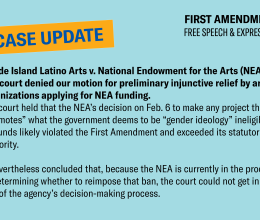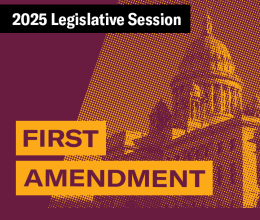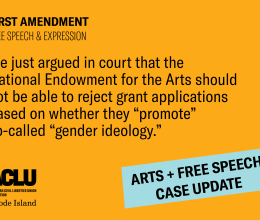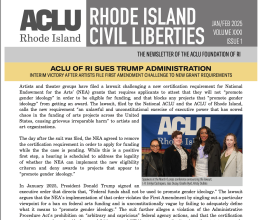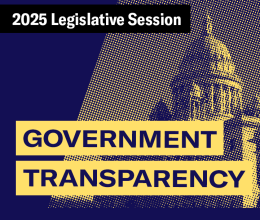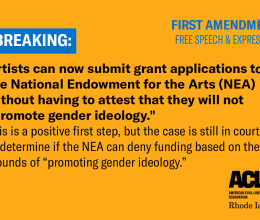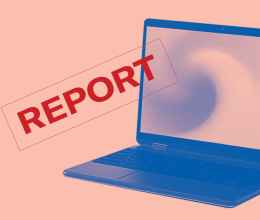
The ACLU of Rhode Island today released a report that both shows that most public libraries in the state oppose the use of censoring software for their computers with Internet access, and that calls upon libraries to take steps to minimize the impact of a recent U.S. Supreme Court decision which will now require most of them to nonetheless install so-called “blocking software.”
In June, in a case in which the R.I. ACLU represented a local health information web site blocked by this commercial software, the Supreme Court upheld the constitutionality of a federal law requiring libraries receiving certain federal funds to install such software on their computers with Internet access – even staff computers – with the purported goal of preventing access to Internet sites that are “harmful to minors.” Instead, the report explains that the deeply-flawed software will result in “widespread censorship,” as it will keep patrons from accessing tens of thousands of lawful and informative political, medical and other sites, while often failing to block alleged “pornographic” sites.
The ACLU report analyzes the results of a survey it conducted in anticipation of the Supreme Court ruling. The survey found that public libraries in Rhode Island have readily embraced the information age and have eagerly sought to provide their patrons broad access to the Internet. Of 38 libraries responding, the vast majority – 29 – had rejected the use of “blocking software.” As a result of the court decision, however, they will be required to install censoring software or reject federal funding, thus likely widening the “digital divide” that already exists between those who can afford Internet access in the home and those who cannot.
Although the federal law seeks to bar library patrons’ access to visual depictions, most blocking software largely relies on word and phrase recognition to determine what sites cannot be viewed. As a result of the technology’s dependence on text, the most innocuous sites can – and often do – find themselves blocked. In one of the more ironic examples, former House Majority Leader Dick Armey’s site was blocked by some software because of his first name! Just as famously, some software blocked users’ access to sites providing information about Super Bowl XXX because of the triple-x in its title.
Despite general opposition to the software, the ACLU report noted that three major municipal libraries – Cranston, Pawtucket and Warwick – were voluntarily using it before the court decision. Ironically, though, those libraries will now need to revise their practices in order to ensure that their patrons have greater access to the Internet. That is because the Supreme Court upheld the law only by interpreting it as requiring libraries to promptly disable the blocking software upon a patron’s request.
The report concludes by offering three non-exclusive approaches available to libraries to minimize the Court ruling’s impact: choosing software that is most protective of free speech; actively informing patrons of their options for filter-free Internet use; and facilitating the disabling of blocking software on their computers. The ACLU is hopeful that this report will encourage public libraries in Rhode Island to take every possible measure available to provide their patrons with the freest access to the Internet that is allowable under the law.
